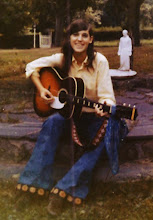The Usual Suspects
Suspect #1
Name: Yoshi, former name: Kobe, picked up on the lam in the streets of Long Island and placed on Death Row until NYC Shiba Rescue sprung him. Now he spends his time as owner of Skye, hanging out in a garden reminiscent of his homeland and plotting Shiba world domination.

Suspect #2
Name: Bob Dylan, aka Dilly, Dilly Dog. Former name: Jerry Garcia. Turned in by family for the crime of teething, turned over to NYC Shiba Rescue who, fooled by his adorable and innocent looking face, immediately exonerated him and gave him ownership of Skye. Distinguishing characteristics: He likes to take on the persona of legendary music icons.

Suspect #3
Name: Storm, aka Stormy, Stupey, Numnuts. Family gave him up as incorrigible and turned him over to White German Shepherd Rescue in Harrisburg, PA. from which Skye unwittingly took him under her wing. Believed to be permanently incorrigible due to bleached brain. Known to counter surf kitchens and, when caught in the act, feigns inability to understand the seriousness of his crime.

Suspect #4
Name: Natty, aka Natasha. Childhood filled with promise, molded by the prestigious Seeing Eye Guide Dog School for the Blind. Had absolutely no interest in a life of public service and was turned over to Skye to live a life full of joyful defiance. (Had she continued with the original plan, it would have been a case of the blind leading the blind.)

Suspect #5
Name: Haiku. Birth name: Fabio. Haiku shouldn't even be in the lineup but chooses to go back and forth between living with Skye and living with Skye's daughter, Molly, depending on his mood and he apparently slipped in. The mastermind of the gang, Haiku never carries out any of the crimes himself but leaves it to his subordinates to do the dirty work, and Skye to clean up the dirty work.



